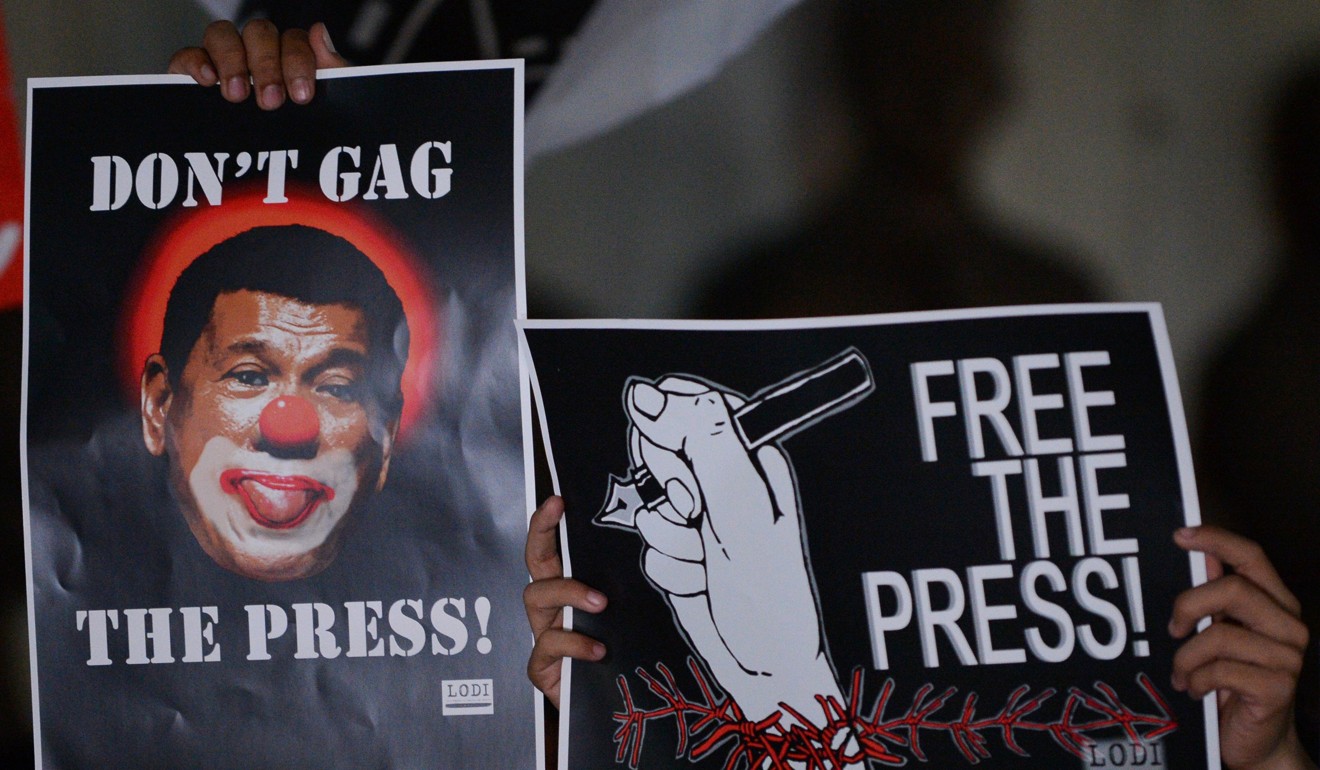
Philippine news website Rappler says 2012 cyber libel claims are ‘political in nature’
The allegations came just days before the site had its business licence revoked for violations of the country’s foreign media ownership laws

Rights advocates have challenged allegations that Philippines news website Rappler committed cyber libel with a story published in 2012, almost two years before legislation for such online crimes had come into effect.
The complaint came a day before the Philippines Securities and Exchange Commission on January 11 cancelled Rappler’s business licence for alleged violations of the country’s foreign media ownership laws – a charge the site denies and has called a “concerted effort to turn journalism into a crime”.
In a subpoena from the National Bureau of Investigation, dated January 10, businessman Wilfredo Keng accused the site’s chief executive Maria Ressa, investor Benjamin Bitanga and justice reporter Reynaldo Santos Jnr of online libel in the May 2012 article headlined “CJ using SUVs of ‘controversial’ businessmen”.
The five-year-old story said a luxury vehicle being used by chief justice at the time, Renato Corona, was registered to Keng. The businessman denied the claims, saying he did own a black Suburban with the number plate ZWK 111, but it was not the one used by the chief justice.
One of Keng’s companies had a pending case in a lower court at the time, Rappler also reported.
However, rights experts said Keng’s complaint is invalid because the article was dated before Filipino cyber libel laws had taken effect.
The Philippines’ Cybercrime Prevention Act, which included cyber libel, was enacted into law in September 2012 – four months after the Rappler story was published. A court restraining order then further delayed the cyber libel laws’ enactment until February 2014.
“A penal law cannot retro-act,” said former Philippine senator and human rights lawyer Rene Saguisag. “One may not violate today a penal law to be enacted tomorrow.”

When the Philippines’ cyber libel law finally took effect, some voiced fears that it would make online libel “a continuing crime” – meaning if an offending post remained on the internet, then a crime was technically still being committed.
But Gilbert Andres, chairman of the Advocates for Freedom of Expression Coalition-Southeast Asia, said: “the Supreme Court has never ever declared libel is a continuing crime.”
“At the time the (Rappler) article was published in May 2012, there was no cyber libel,” he said. “[It was] way, way back before the cybercrime law took effect.”
Rappler’s operating licence was revoked last week for allegedly breaking the law in 2015 by granting American investor Omidyar Network the means to exercise some control over the news site, or veto powers on company decisions.
Ressa denied any wrongdoing in both cases, and said the timing of the cyber libel subpoena was puzzling.
“I believe this is a concerted effort that can have impact on all of us, on press freedom,” she said.
“What we were told is this is coincidental.
“Again, too much coincidence creates a pattern. And the pattern is clear. This is political in nature.”
Rappler has repeatedly drawn Philippines President Rodrigo Duterte’s ire and just last week he called the site a “fake news outlet”.
Presidential spokesman Harry Roque has denied that Duterte had anything to do with the legal challenges.
“If the president wanted to curb press freedom, he could have done it, but he only speaks against the press,” Roque told a regular briefing.
“That is all he can do and he has the right to be angry and curse the press.”
Rappler is operating as normal pending an appeal.
Additional reporting by Reuters